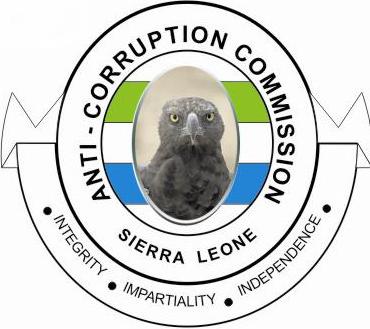By: Martina George, Communications Officer. ACC
The popular adage is, "prevention is better than cure". This is particularly true for theprevention of corruption, when public trust, the effectiveness of institutions, economic development and the security of the State are at stake. Even the most successful enforcement of criminal law happens after the crime has already been committed and the detrimental consequences of corruption have taken place. In retrospect, prevention gives the opportunity to curb or eradicate corruption before it actually takes place.
Corruption is a form of dishonesty or a criminal offense which is undertaken by a person or an organization which is entrusted a position of authority, in order to acquire illicit benefits or abuse of power for one's personal gain. Political corruption occurs when an office-holder or other governmental employee acts with an official capacity for personal gain. (Wikipedia)
The Corruption Prevention Department of the Anti-Corruption Commission (ACC) in the past four years has done tremendous work in the fight against corruption. Pursuant to Section 7(1) (a) of the Anti-Corruption Act 2008, the Prevention Department is mandated to examine practices, processes and procedures in MDAs and other public bodies including instructing any person or authority on ways in which corrupt practices can be reduced or eliminated. More so they set very high standards to ensure that MDAs and other government owned state actors comply fully with those recommendations provided.
One of the most fundamental benefits of corruption prevention in any country is that it helps the detection and elimination of the causes of and conditions for corruption through development and implementation of a system of appropriate measures, as well as deterrence against corruption- related criminal acts. Nipping corruption in the bud with appropriate corruption prevention measures, systems and procedures are another effective way to eradicate it. Graft tends to be systemic if there are no checks and balances in an organization, flouting of rules and regulations will inevitably be the order of the day and using these systems and procedures helps to curb it before it germinates into an uncontrollable weed.
The Prevention Department consists of three Units namely, the Systems and Processes Review, the Policy and Ethics, and the Monitoring and Compliance Units. They all play a pivotal role in actualizing the said goal of preventing corruption.
In the four years of Commissioner Ben Kaifala’s leadership, the Systems and Processes Review Unit has conducted fourteen (14) reviews. Key among the MDAs reviewed are; the National Telecommunications, the Water Sector; Thematic reviews of Budgetary Allocation to Guma, SALWACO, Ministry of Water Resources, Water Regulation Commission etc, and twelve (12) Service Charters reviewed and developed in the Ministry of Mines and Mineral Resources, the Ministry of Agriculture, Immigration Department and many more.
The Policy and Ethics unit deals with policies to ascertain their relevance or adaptability to the present situation or whether they have inherent corruption prevention mechanisms. They also develop Service charters for citizens to know the services and associated cost rendered by institutions. In essence, the policy and ethics unit prepare the platform for policy development and service charters formulation. In the last four years, they developed eight (8) Institutional Anti-Corruption Policies for Institutions, among them are; the National Commission for Social Action, Ministry of Mines and Mineral Resources and the Sierra Leone Roads Safety Authority. Seven (7) Ethics and Integrity Training Workshops conducted in different MDAs, the Freetown City Council (FCC), National Electoral Commission (NEC), National Revenue Authority (NRA), Local Councils, the Ministry of Education and the Teaching Service Commission (TSC). All of these above-named institutions in which these corruption prevention interventions took place play strategic roles in society.
The Monitoring and Compliance Unit empowered by Section (8) of the Anti-Corruption Act 2008 as amended in 2019 to cover compliance issues of MDAs activities and retain unrestricted access at any time to all information, records, personnel, property and operations of MDAs in Sierra Leone, oversees the implementation of monitoring and compliance strategies and policies. Their responsibilities are to develop processes that will identify measure, monitor and report suspicious cases of any Monitoring and compliance breaches, setting appropriate internal monitoring and compliance system which they use to assess compliance of MDAs. In the last four years, the Commission made 461 recommendations proffered through systems review, 336 recommendations were implemented and the total of 73% of compliance level rate.
The appointment of the Anti-Corruption Commissioner Francis Ben Kaifala, in the last four years has been extremely fruitful and the statistics of reviews and recommendations conducted by the Commission are tremendous, for instance corruption prevention revenue recoveries amounted to three (3) Billion Leones in cash in terms of refund for the payment of, application forms for colleges and universities, debt collection from SALCAB and payment for licenses for Sierra Leone Road Safety Authority (SLRSA).




